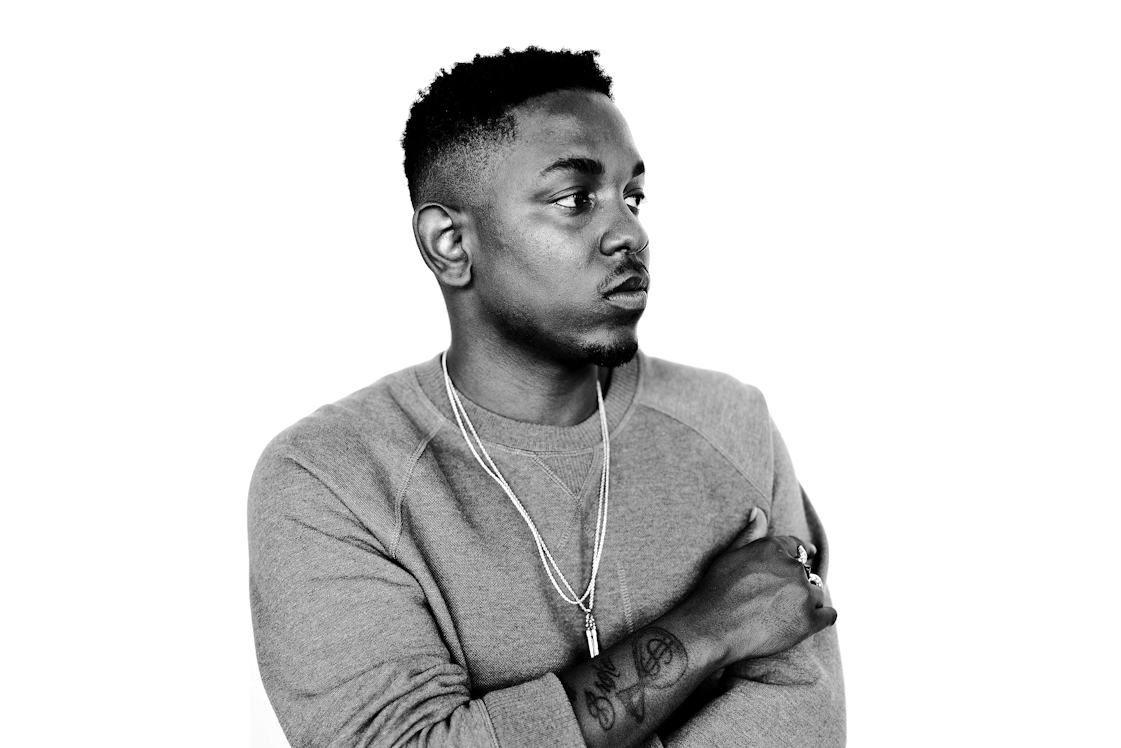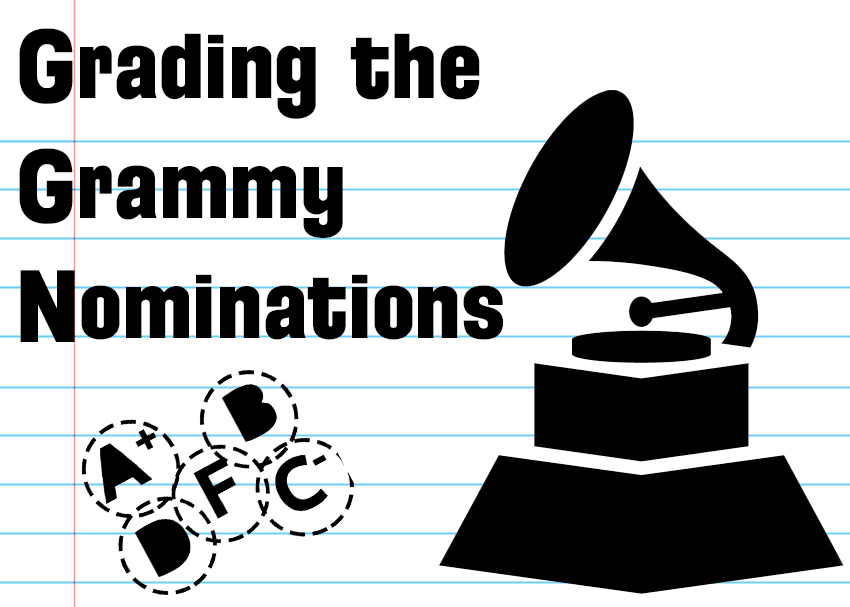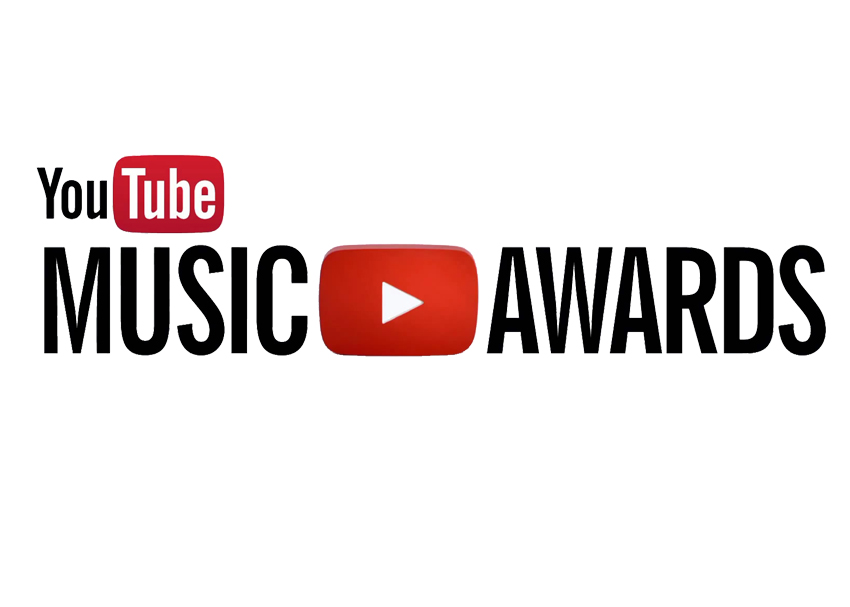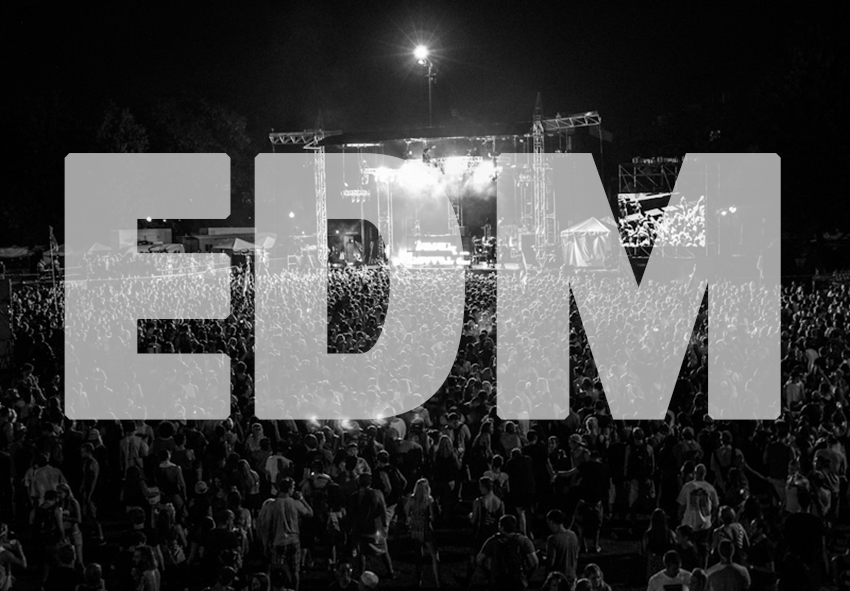Grading the Grammy Nominations
As the music industry has evolved over the past decade into the digital world, things have changed quite a bit. Hard copies are hardly ever bought anymore, nor does anyone seem to buy whole albums at all, as the iTunes Store model has taken over and the industry has increasingly become about what the consumer wants as opposed to what the labels want the listeners to hear. While this has resulted in a sort of musical reawakening, creating a culture where listeners can stream, download or play any track they can think of with the touch of a button, music has expanded at a rapid pace, creating new genres and sub-genres and infinite new off-shoots that don't fit cleanly into any one established genre or sound.
Standing behind this industry, bearing the largest prize of all, is the Grammy Awards. This year, the award show enters its 56th installment and, while a dance music category was finally introduced last year, the judging seems more out of touch than ever, but of course this has been an issue for some time. The Grammys are like Social Security. You don't really care about it much until you're too old to get up from the sofa. Generations have rallied against the award for years. In 1991 Sinead O'Connor simply refused to show up and boycotted the show, despite being nominated in four categories. After winning "Best Hard Rock Performance" in 1998, Pearl Jam frontman Eddie Vedder stood onstage perplexed and, staring at the golden trophy, said into the microphone, "I don't know what this means. I don't think it means anything." It's not news that the team behind the Grammy Awards has been out of touch for some time, but at no time in history has it been so blatantly about the money in an industry that today makes significantly less money than it used to. It's macroeconomics of the current American condition played out with celebrities and gold gramophone statues. Plus, Kanye already spoke out. So, for this latest round of Grammy nominations, I figured I would sift through who was chosen and offer up my own choices for the top prizes in music this year.
YouTube Music Awards... Interesting
The inaugural YouTube Music Awards (YMA) took place Sunday night in New York City. The website-sponsored music awards show, touted as a celebration of the do it yourself content environment Youtube helped to foster. It was billed as the crowning moment of years worth of artists that have taken things into their own hands to make it on their own terms. From the sounds of it, the YouTube Music Awards seemed poised to crown those who had used the website as a come up. Think Mac Miller, Macklemore, Chance The Rapper and the hundreds of young artists and directors across the country using the site to get their art to the world.
Instead, the YMAs featured headliners Arcade Fire, Lady Gaga and Eminem performing while shooting live music videos with program director and legendary video director Spike Jonze. It was, in the words of one of my former Journalism professors, one of the biggest public blowjobs in the history of already blowy award shows. The awards show was, in essence, Jonze's wet dream, a grand stage for the director to remind everyone he's pretty good at what he does. Add in the fact that hosts Jason Schwartzmann and Reggie Watts rarely had any idea what to say and you have yourself a show with a production value seemingly lower than many of the videos the site hosts.
In a similar position to that of MTV on September 14, 1984 when the Video Music Awards first entered the world, YouTube finds itself as the de facto landing spot for music videos in today's media climate. Perhaps because of this distinction, the YMAs came to fruition yesterday. Jonze, earlier last week, voiced his interest in creating "live music videos" at the awards show. While playing on YouTube's reputation as an open-source type format from which anyone can make a name for themselves, Jonze missed the mark in directing videos for larger-than-life acts such as Lady Gaga, Arcade Fire, Eminem and Avicii; forgoing the up and comers that make the greatest use of the streaming video site.
It wasn't all bad. While the artists featured may have been different from what I had in mind when first picturing the YMAs, organizers did get plenty right. For one, by producing a live awards show, albeit a show Jonze described beforehand as one in which "We’ve been given a lot of room to make a mess,” YouTube was able to step up and prove itself a viable alternative to traditional television-an important distinction as viewers increasingly ditch the tube and cable for free streaming service via the website. Winners were also voted on by fans, a nod to the user-generated content and interaction that has made YouTube the media Goliath it is today. While Eminem interestingly won 'Artist of the Year' days before his first album in two years came out and kid's group Girls' Generation won best video, it was a good move to leave it to the fans. . . I guess.
Regardless of what I or anyone else thought of the show last night, it happened, and that's all that really matters at the end of the day. The web was flooded with fresh memes and, soon, a slew of new Jonze-directed videos. Any first run is going to be a little rough around the edges (see: early VMAs), but it will be interesting to see where YouTube takes the fledgling awards setup-to the mainstream or tailored to the users actually frequenting the site and providing much of the content. Either way, organizers of the show and YouTube can sleep easy knowing they're having a better week than former YouTube owner Chad Hurley, who got himself in Kanye West's line of fire this week, although Tyler, The Creator may feel differently (see below).
[youtube id="du1SJ9APuNw" mode="normal" align="center"]
Hardwell named No. 1 DJ
Hardwell rose up the ranks over the past year through incessant marketing, a radio show and a live set that is a highlight at every festival and lineup to become the world's number one DJ, according to DJ Mag. Ranked last year at number six, the dutch sensation hit the top spot in 2013 against stark competition from the likes of Avicii and Armiin Van Buren. I had the chance to catch him while covering Electric Daisy Carnival in Joliet this past May, check out the interview below via The Frontliner.
[youtube id="XR8JNNY9fSg" mode="normal" align="center"]
Wall Street Advisor Values EDM at $20 Billion
The monster that has become Electronic Dance Music is an anomaly in the history of the music industry. This week, Wall Street veteran John Langdon and his company, Massive Advisors LLC, projected the EDM market as a "$15.0 to $20.0 billion global industry, with the major players in the global festival market achieving $4.5 billion in sales for 2012." Since the recording industry was humbled over a decade ago by Sean Fanning and peer-to-peer file sharing, the "traditional" route for artists has changed dramatically, as have the bottom lines of most labels and artists.
The surprising thing about Langdon's report is that, "The findings of the Massive White Paper show the EDM industry still is often completely ignored or misunderstood by governments and businesses worldwide -- from traditional music distributors, to apparel brands, to acoustics manufacturers." Turn on your radio. There is definitely a rock station, a hip-hop station, an oldies station, etc. I have yet to see an EDM-dedicated radio station, at least here in the Midwest. EDM is simply the first genre to emerge (or, re-emerge) in the aftermath of Napster, as technology slowly encapsulates our daily lives. EDM lives on the internet. Sites like Beatport have blown up by catering to EDM artists and fans. The best way for artists to make money these days is performing, and perhaps nowhere else in the music landscape are artists paid so much for seemingly doing so little.
An artist with a band has to split whatever he makes with everyone he performed with, plus the money to move the equipment from place to place. In contrast, EDM artists rarely need more than a computer, assorted electronic equipment, a place to stand and enormous speakers, and they get paid like kings. Earlier this month we posted a Forbes report of the top paid DJs in 2013. 23 year old Avicii, who has yet to release a full-length studio album, pulls in $20 million a year while Calvin Harris, who commands upwards of $200,000 for a performance raked in nearly half a billion dollars himself. As the genre continues to grow, it will be interesting to see if the bubble pops. Until then, dance on.
http://youtu.be/v3ZIWYVYEK0





